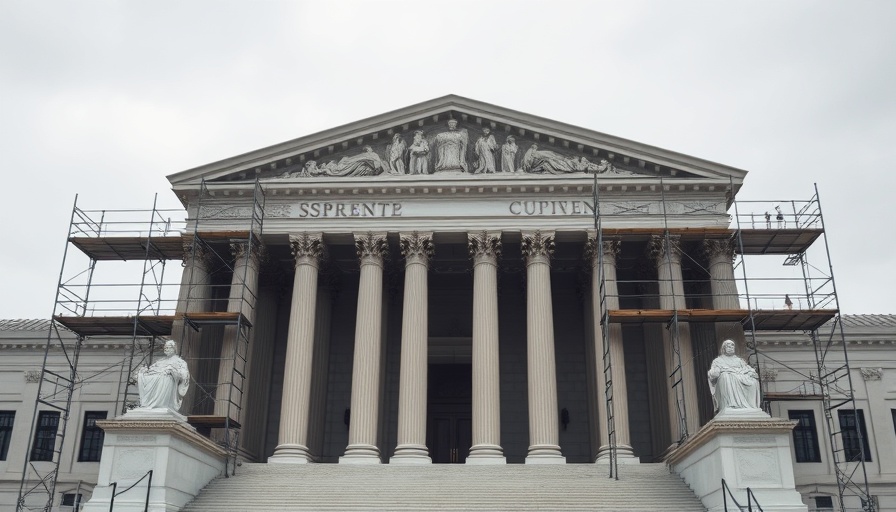
The Supreme Court's Recent Ruling: A Shift in Judicial Authority
On June 27, 2025, the U.S. Supreme Court made a significant decision that partially sided with President Donald Trump regarding his controversial executive order aimed at ending birthright citizenship. In a 6-3 ruling, the court, led by Justice Amy Coney Barrett, limited the power of district judges to issue nationwide injunctions. This ruling not only favors the Trump administration's efforts but also signals a potential shift in the judicial landscape related to executive authority.
The Supreme Court's decision focused on the question of whether a single judge could impose universal injunctions that affect individuals beyond the plaintiffs involved. Justice Barrett remarked that while the individual plaintiffs were entitled to relief, the extension of injunctions to all similarly situated individuals was unnecessary for achieving that relief. This nuanced take opens a conversation about the boundaries of judicial power in administrative matters.
The Implications of Nationwide Injunctions
Nationwide injunctions have historically served as a tool for lower courts to check executive power by preventing new policies or actions from taking place across the country. Advocates for such injunctions argue they create a vital balance between state actions and federal authority, protecting citizens' rights against potential overreach. However, this recent ruling presses the question of whether such checks are becoming less viable, particularly in light of the current political climate.
Moreover, the ruling does not resolve the fundamental issues surrounding Trump's executive order. Legal challenges will persist as the matter is still under review, allowing for further litigation that examines the constitutional aspects of birthright citizenship.
What This Means Moving Forward
The practical outcomes of this decision highlight a complex interplay between executive policy-making and judicial oversight. As President Trump paves the way for implementing the birthright citizenship order, it raises concerns about the long-term consequences for families affected by this policy and the overall principles governing citizenship in the United States.
For professionals in legal fields, healthcare, and finance, understanding the implications of this ruling is crucial. The balance of power among branches of government affects various aspects of governance and policy enforcement that could influence how laws are interpreted and executed in practice.
 Add Row
Add Row  Add Element
Add Element 



Write A Comment